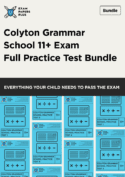
Covid-19: Turning a negative into a positive – Advice, suggestions and tips to help support your child
Bookmark this page? Pop your email into the box below to receive a link to this article so you can easily refer back to it later.
These are difficult, challenging and unprecedented times. You will have heard and read these sentiments numerous times over the past few days, so I don’t want to dwell. None of us know how to play this or what will happen next. But there are things we can control, so let’s focus on those and turn what could be an unpredictable situation into one of advantage.
As many of you will working from home or self-isolating as a family, this is time to spend productively with your children.
Children need a positive structure to their day. Setting a clear routine, particularly for younger children – such as a couple of hours of academic work in the morning and a set time for art, play and music in the afternoon – is a sensible target for families to work towards. It will help keep both adults and children sane!
For those of you working towards an entrance exam from 7+ to 13+, treat this time as an unprecedented gift in which you can prepare your child without the usual pressures! As we have no idea if schools will push back their entrance exams or not, you should use this time now to build skills and knowledge slowly but surely. Many of you will be using our resources as part of the mix, so if you would like any guidance on how best to use them or what to tackle first, Faisal and I are both on call to help.
We also realise it’s going to be a tough call for parents to work with and constantly entertain their children. That is where online tutoring can alleviate some of the pressure. Knowing that your child has a regular session scheduled with a tutor can add a sense of focus and discipline to their learning, as well as giving you some valuable time off! It is also vital if you are preparing for an exam and need to know if they’re on track. We would be delighted to help arrange academic tuition for you, so please do get in touch.
There can be challenges to tutoring some young children online in terms of concentration and dexterity, but it can also work very well. We work online with many six and seven year olds who demonstrate high levels of attentiveness and focus, but it does depend on the individual child. Therefore, we want to open up our one-on-one tutoring sessions to parents too, to empower you to teach and guide your child. You can use this time with a tutor to ask questions about how and what to teach, or to get a steer on levels and expectations. We find that one of the greatest challenges facing parents is not knowing the standard needed as they have no way of benchmarking – so this is where we can help. Please contact us via the form on this page right away if you’d like to set this up.
And now, a few thoughts on reading, an activity which I think can and should be embraced at this time. Daily reading should feature in your child’s home timetable, without a doubt! You may have to be a little more creative in introducing it however, so here are some ideas:
Storytelling – come together as a family and read stories aloud. Choose traditional favourites or ask your children to read sections from their favourite books and explain to everyone in the family why they like it so much. (Talking about books is an invaluable interview skill!) You could ask them to make up stories. This will fire the imagination and help them with creative writing later. Group storytelling can build a child’s confidence, creativity and understanding.
Audio books – download children’s stories and listen together. You will often find an author reading their own work, which can be fascinating to a child, or an actor who brings life and humour to the words. You can also watch actors and authors performing their work on ‘Jackanory’ (BBC) or YouTube, for example. I particularly like the fun and energetic way author and poet Michael Rosen presents his work. Discussing anything you have listened to together is key, as that’s where they will get their chance to express an opinion and you will learn how much they have understood and what you can help them with.
Read poems out loud – after all, most children’s poems are meant to be performed. That’s why they have rhythm and rhyme and are often fun and cheeky. Hearing verse read aloud makes the words sing, aiding understanding and boosting vocabulary. The right poem can also start a love affair with words. Now is the time to encourage this. I can still remember the poems of AA Milne, read to me as a child by my mum! You could even challenge your child to learn poems off by heart. This will aid memory and recall.
Start an online book club – set up a virtual book club with your children and their friends via Skype, Zoom or FaceTime. Your children and their friends can share the books they love, whilst giving you time to connect with parents going through the same thing. It’s our friends, communities and support networks who are going to get us all through this!
Interactive reading – read one on one with your child, asking them questions as you go and getting them to record and look up new words. This is ideal if you are preparing for an exam and have targets to meet. However, it has to be managed to be effective. Sessions must not be too long. Make it clear to them that they will not be expected to do this every time they pick up a book, as this is a sure-fire way to kill the reading bug!
The following Reading Workbooks may prove especially useful:
Individual reading – being in close proximity does call for individual time, for both parents and children, so allow them time on their own to curl up with a good book.
Stuck for reading ideas?
Follow these links to our recommended book lists to get you started:
Teaching Guides – At this stage, our Complete Guides will prove especially useful. They are specifically designed to cover the full syllabus in a detailed, step-by-step manner with plenty of helpful tips, suggestions and advice to help both you and your child:
The Complete Illustrated Guide to 7+ Mathematics
The Complete Illustrated Guide to 7+ Comprehension
The Complete Illustrated Guide to 7+ Writing
The Complete Guide to 8+ Comprehension
The Complete Guide to 8+ Writing
The Complete Guide to 11+ Comprehension
The Complete Guide to 11+ Writing
We’re here to help and support in any way we can. Please feel free to contact us here.
Louise Lang,
Director, Exam Papers Plus
Bookmark this page? Pop your email into the box below to receive a link to this article so you can easily refer back to it later.
















